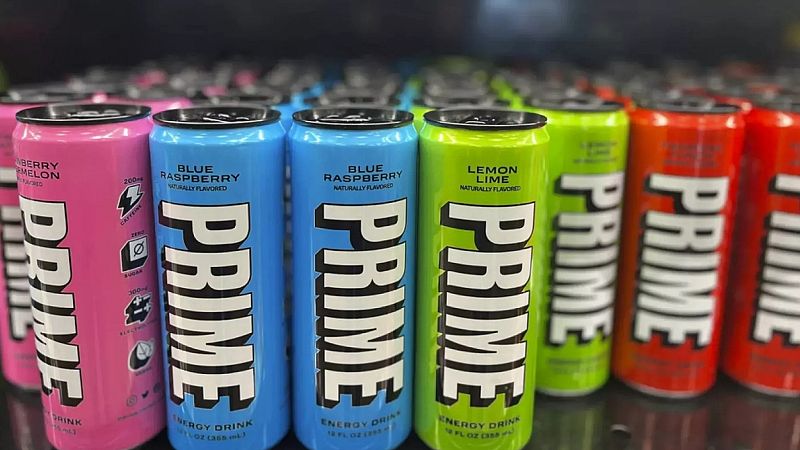Portugal considers ban on sale of energy drinks to under-16s

Portugal's public health agency is considering a ban on the sale of energy drinks to minors, at a time when the issue is being discussed in several European countries.
The news was reported in the weekly Expresso and confirmed by Euronews.
Portugal's Directorate-General for Health (DGS), a branch of the health ministry focused on health promotion, told Euronews that in addition to the ban on advertising aimed at under-16s, there would also be a ban on the sale of these drinks in public schools.
However, the agency believes that these actions can still be complemented in order to protect young people's health.
"The evidence shows that, in addition to regulating advertising and regulating their offer in certain public spaces, additional measures can be considered to limit the availability and access to these drinks by younger people, namely by restricting their sale to specific population groups, such as children and adolescents," the Portuguese health authority said in a written statement.
The DGS pointed to the UK government's proposal to restrict the sale of energy drinks to under-16s, saying this measure could also be applied in other countries – just as taxes on sugary drinks caught on.
"In Portugal, we are paying attention to the impact this measure will have in the UK and to other scientific issues and, if it proves to have an impact, we will make a proposal to that effect," the DGS said.
In Portugal there is no restriction on the sale of energy drinks to minors, but this discussion is already taking place in several countries, such as Spain, Germany, Slovenia, and Hungary. In Norway, the ban on sales to under-16s starts in January.
In the UK, where it is believed that up to one-third of children consume these types of drinks every week – despite the fact that most supermarkets have already introduced a voluntary ban – a 12-week public consultation is underway to gather evidence from health and education experts, as well as from the public and the retailers and manufacturers who already ban the drinks.
Energy drinks growing in popularity
In Portugal, supermarket sales of energy drinks have increased by nearly 50 per cent in just two years.
According to the DGS, various international studies have shown that consumption of these drinks is high and has been increasing among teenagers and young adults, with an estimated 44.5 per cent of teenagers having consumed energy drinks at least once in the last year and 33.5 per cent having consumed them at least once in the last month.
"In Portugal, although there are few nationally representative studies, the available data also points to similar conclusions," the organisation said, citing a study by the Food and Economic Safety Authority (ASAE) carried out in 2014 in the Lisbon district which showed that 42 per cent of teenagers consumed energy drinks.
Given this data, the DGS emphasised that "the consumption of energy drinks should be avoided by risk groups such as children, adolescents, pregnant women, nursing mothers and people with cardiovascular, gastrointestinal, hypertension or mental disorders, as they are more susceptible to the adverse effects of caffeine".
Nutritionists and paediatricians have also been warning about the very high levels of sugar and caffeine in these drinks. A 500ml can contains the equivalent amount of sugar to 14 four-gram packets of sugar. As for caffeine, it's the equivalent of five 330ml cans of Coca-Cola.
Energy drinks can cause increased heart rate, agitation, headaches, insomnia, dehydration, dizziness, anxiety, irritability, tremors, increased blood pressure and gastrointestinal disorders.
In addition, the DGS warned that the risks are higher when people combine energy drinks with alcohol, which is common among young people.
Today

